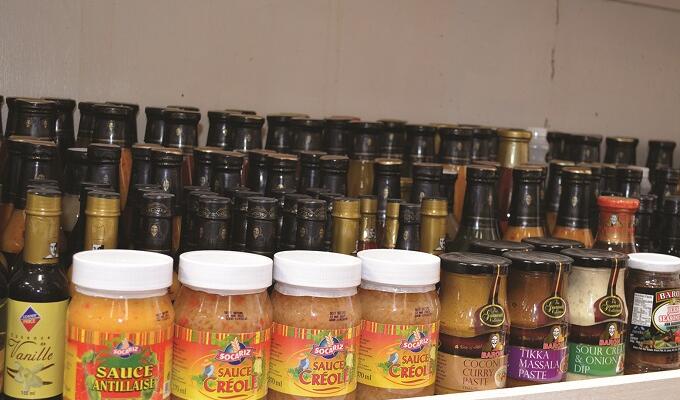

Striking a balance with the future (en)
development and environmental protection
Sustainable tourism is about re-focusing and adapting in the quest to strike a balance between limits and usage. This requires long-term thinking, often over decades, and realizing that change is often cumulative, gradual and irreversible.
Socioeconomic and environmental aspects of sustainable development must include the interests of all stakeholders, including local communities, visitors, industry and government. A very important stakeholder not always included in those plans is the one who is not yet born. Indeed, as defined by the 1987 Brundtland Commission and its report, ‘Our Common Future’, sustainable development is that which ‘meets the needs of the present without compromising the ability of future generations to meet their own needs’.
Sustainable tourism is inextricably linked with sustainable land use, a reality that is critical for small-island developing states (SIDS). One such example is the Caribbean island of Saint Lucia, where the destination experience is defined predominantly by natural and marine aspects and by a cultural product interwoven with the physical landscape and environment. With economic security so heavily reliant on a fragile natural resource base, economic development and environmental protection should not be seen as opposing forces, but pursued hand in hand as aspirations that can be mutually reinforcing. Policies and actions must aim to strengthen the benefits and reduce the costs of tourism.
BOOSTING EXPORTSThe Trade Export Promotion Agency (TEPA) is Saint Lucia’s national agency mandated to spearhead the island’s export development effort. It works to increase aggregate volume and value of exports from Saint Lucia; promote and expand business in international markets; and help businesses improve profitability and long-term sustainability. These outcomes are pursued through sectoral representation on business and trade policy. In addition, information services keep the sector abreast of global trade trends, trade facilitation and promotion and, marketing support to penetrate new and existing markets.
The inescapable interdependencies that exist between our clients and the environmentally reliant tourism sector underpins the rationale for the deliberate alignment of the work of the agency mandated to market Saint Lucia as a tourist destination – the Saint Lucia Tourism Authority (formerly the Saint Lucia Tourist Board). A priority for TEPA has therefore been to ensure that small producers who use raw materials in environmentally sustainable proportions have a secure place in the manufacturing and tourism value chains.
One such example is a collaboration between these sister agencies for the staging of the annual Love Elevated Wedding Symposium, taking advantage of the island’s standing as an a favourite location for weddings. TEPA’s input was the production and launch of a Simply Beautiful Weddings. An online catalogue the gave suppliers – florists, venue operators, producers of unique gifts, handcrafted jewelry, fashion and mementos – year-round worldwide visibility in an ever-evolving and expanding wedding industry.
PARTNERSHIPSTEPA is also pursuing these objectives through partnerships with other businessfacilitation agencies like the Saint Lucia Bureau of Standards and Saint Lucia Coalition of Service Industries (SLCSI), which works to organize service producers. SLCSI boasts 13 groupings under its umbrella including travel consultants, engineers, health and wellness, architects, creative producers, realtors and florists – sectors whose operations have environmental impact. This facilitates synergies and economies in the area of capacity building for small producers in the context of quality management systems and information technology to be able to meet benchmarks for trading.
TEPA is justly proud of the success of a pilot intervention with Saint Lucia’s largest agro-processor, Baron Foods to strengthen local value chains. This project enabled the successful penetration of the firm’s line of gourmet sauces into new European markets in 2015. Fusing the taste of the Caribbean from strictly local raw materials, each product’s core ingredient is supplied by a single Saint Lucian farmer who is tasked to ensure product availability year-round. In effect, Baron is successfully establishing market differentiation, consistency in distribution and supply at the market end while guaranteeing markets to small farm holdings across rural Saint Lucia, whose operations facilitate sustainable agriculture.
In 2016 TEPA, in collaboration with the
British-Caribbean Chamber of Commerce
(BCCC) and Drewtons Estate and Farm
Shop, hosted a Saint Lucian-themed dinner
and Saint Lucian Day (product exhibition and
sampling) to promote our products and services
and explore new avenues for expanding
the island’s exports to the United Kingdom.
Furthermore, in March 2017 TEPA
and the Organization of Eastern Caribbean
States (OECS) hosted the first Specialty Caribbean EXPO. Through this triennial
event, TEPA is leveraging its strengths to the
benefit of export-ready suppliers of a diverse
range of consumer goods – from construction
to entertainment, from food to fashion,
from cut flowers to travel and hospitality.
Key to the success of this event was the
opportunity for purchasing managers from
hotel chains to assess and sample products
for possible inclusion in their service offerings,
menus and gift shops, and for potential
buyers and retailers to see and sample the
OECS market.
In 2016, TEPA held a private businessto- business exhibition for Saint Lucia’s largest tourist retailer, Sea Island Cotton Shop, and with five local manufacturers of primarily aromatherapy and herbal products as well as high-end chocolates. All five exhibitors were selected to be retailed. This pilot serves as a model to migrate other suppliers into the tourism value chain.
Value chains, backward and forward linkages, cottage industries and renewable energy all have one thing in common: synergy. This is why policies and practices must be focused on the survival of businesses, sectors, economies and most importantly, people. TEPA remains committed to pioneering initiatives and pursing strategic partnerships that directly or indirectly foster Saint Lucia’s sustainable development goals.



